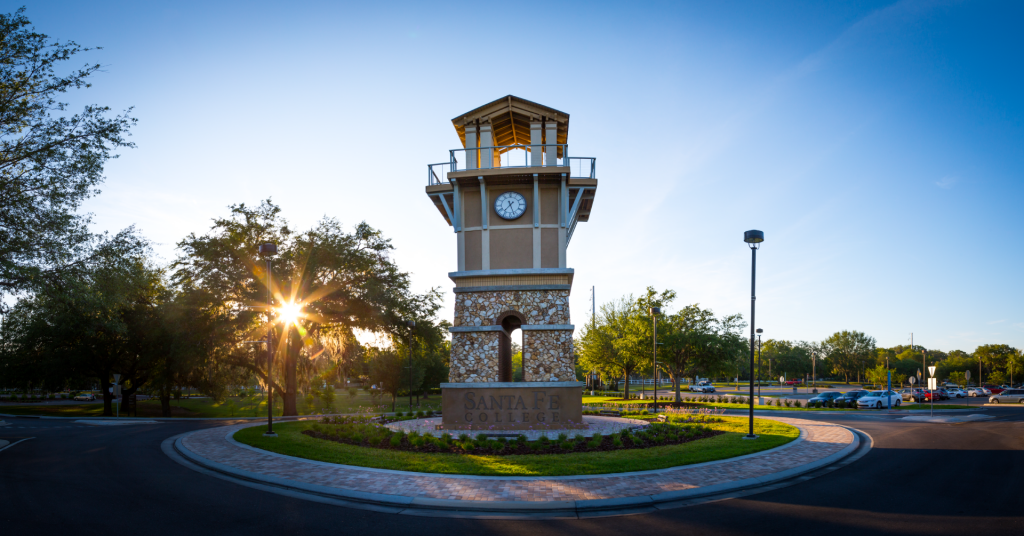Former Student Credits Professor's Critical Thinking Exercise for Her Success Beyond SF
April 26, 2013
Denee Salazar recently graduated from Santa Fe College with honors and is now attending the University of Florida, majoring in horticultural sciences with a minor in soil and water science. Salazar is a University Scholar, College of Agricultural and Life Sciences (CALS) Honors student, undergraduate researcher and the recipient of numerous awards and scholarships. She admits that her UF studies are not easy; they are competitive and writing-intensive, but Salazar attributes the preparation she received from ENC1101 with SF Professor Emeritus Ward Scott and his fallout shelter exercise as the core experience that put her well ahead of her college classmates.
Scott begins by dividing the class into three groups and informing them that they are now top-ranking officials with the United States Department of Defense. Because of the Middle East crisis, World War III has erupted; it is, unfortunately, a nuclear war. Each group is given the task of deciding who is allowed to stay in the federal fallout shelter. There are sixteen applicants, but the one shelter only has enough space, food, air and water for three months for a maximum of eight people.
To complicate the decision-making process, the brief biographies of the applicants contain information that is designed to elicit emotional responses from the students. Perhaps an applicant has Down syndrome, doesn't trust men or has an unknown HIV status. There are more men than women, two applicants are married, another a priest.
The groups are to develop a systematic approach to discussing the situation, present their points of view clearly and logically and listen to others when they are talking. Under no conditions are they to bargain or flip coins. Scott does not participate in the exercise in any way. He knows nothing more about the applicants than the groups do, and he is not a member of any group. The students are on their own.
Scott adapted the fallout shelter exercise from the book "Values Clarification." Over time, Scott learned that the three groups never pick the same eight people, so he tweaked the exercise and informed the groups that the government had announced it wants just one list of eight. With this new twist, the groups must now choose their own leader who will go the Summit to attempt to persuade the other two groups' leaders to adopt their eight. However, the groups were never been able to agree on the same eight, which led Scott to create The Arbitrator. The Arbitrator is a student chosen by Scott whose identity is secret. He or she is in charge of writing the final settlement and providing the logic and reasoning for choosing his or her eight applicants.
Salazar says that because she was picked to be The Arbitrator, she learned exactly what Scott was trying to teach: he wants to push students outside of their comfort zones, past the simple thought process of high school into something deeper and more worthy of college-educated minds. He wants his students to question the world around them, learn to apply logic and reason and come to educated decisions about the issues they will face. Each step in the fallout shelter exercise was meant to expand students' minds and teach them individual thought. From this experience, Denee says, "I learned to think."
For students beginning their college careers, Salazar advises, "As you continue your education, you will be exposed to many arguments, studies and expert opinions. Question them! Examine what you hear and read logically and you will find many flaws. Data can always be manipulated to suit those presenting the findings. Go to the source and find out for yourselves. It will take more time to do research and form your opinions but it will be worth it. You will be able to argue your points more effectively and be heard more clearly than people that have not been through logic training."


